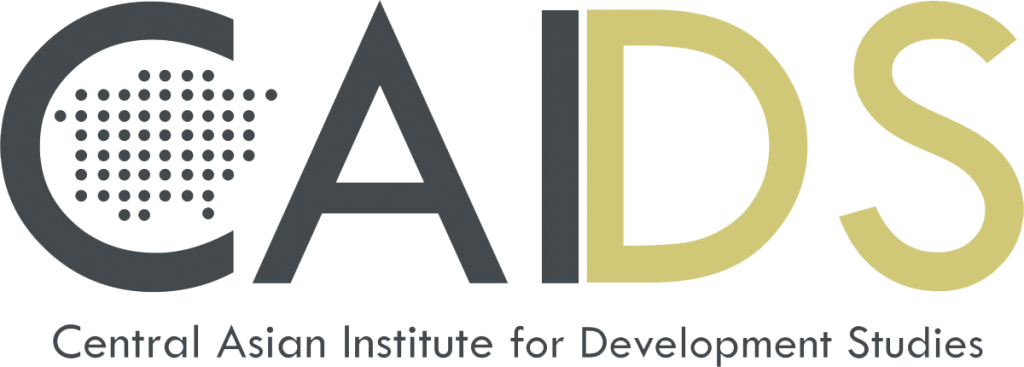Master's Program "International Business and Strategic Control"
"M070 - Economics"
"M070 - Economics"
This educational program was developed with the support of the INTERNATIONAL SCIENTIFIC AND TECHNICAL CENTER (ISTC) and the European Union.
About the program
The educational program "International Business and Strategic Trade Control" allows students to acquire the necessary knowledge and skills for the effective introduction of business in an international business environment.
This master's program will allow future specialists to gain new competencies for the implementation of professional activities in the field of strategic trade control.
The content of the program is interdisciplinary in nature and is developed at the junction of several areas within the specialty "M070-Economics".
The purpose of the educational program:
Preparation of masters with in-depth knowledge in the field of international business and strategic trade control with the skills of analytical organizational and management activities to work in an international environment and methods of fundamental and applied scientific research.
Code and name of the educational program:
7М041 - International Business and Strategic Trade Control
Awarded Degree:
Master of Science in Economics in International Business and Strategic Trade Control
Study period:
2 years
Dual Degree Program:
University of Liege, Liege, Belgium
About the program
The educational program "International Business and Strategic Trade Control" allows students to acquire the necessary knowledge and skills for the effective introduction of business in an international business environment.
This master's program will allow future specialists to gain new competencies for the implementation of professional activities in the field of strategic trade control.
The content of the program is interdisciplinary in nature and is developed at the junction of several areas within the specialty "M070-Economics".
The purpose of the educational program:
Preparation of masters with in-depth knowledge in the field of international business and strategic trade control with the skills of analytical organizational and management activities to work in an international environment and methods of fundamental and applied scientific research.
Code and name of the educational program:
7М041 - International Business and Strategic Trade Control
Awarded Degree:
Master of Science in Economics in International Business and Strategic Trade Control
Study period:
2 years
Dual Degree Program:
University of Liege, Liege, Belgium
Graduate Competency Profile

Managerial
- Development and implementation of a strategy for entering foreign markets;
- Management of foreign economic and divisions of the company.

Foreign economic
- Formation and expansion of a client base abroad;
- Interaction with customs and logistics structures in the context of transactions with dual-use goods.

Analytical
- Analysis of world markets, business conditions in different markets;
- Development of recommendations for Kazakhstani companies to enter foreign markets.
List of specialist positions
Customs Broker
Business Development Manager
Sanctions Specialist
International trader
Supply chain specialist
Business analyst
Product manager
Program structure
1 semester
- Foreign language (professional)
- History and philosophy of science
- Strategic trade control in international economic relations I
- International Business (Advanced)
- international trade
- Introduction to Strategic Trading Control
- International competition and antitrust regulation
2 semester
- Higher education pedagogy
- Psychology of management
- Strategic trade control in international economic relations II
- Micro-macroeconomic analysis (advanced level)
- Economic trends and challenges of globalization
- Integration processes in the European Union and the Eurasian Economic Union
- Industrial Policy and Strategic Trade Control in Kazakhstan
3 semester
- Research methodology
- Theory of contracts in international trade
- International e-commerce strategies
- Compliance in international trade
- Legal framework for international business
- Business analytics of foreign economic activity
- International logistics and supply chain management
4 semester
Research practice





INTRODUCTION
Motivation, context, and local institutional need
Central Asia possesses a lot of natural resources in terms of oil, gold, uranium, etc. The region is a big supplier of hydrocarbons and rare metals to technologically developed OECD countries. Nowadays, the regional paradigm of attracting more foreign direct investments to CA is being transformed into exchanging natural resources for advanced technologies and innovations. This good idea is difficult to implement, taking into account sensitivity of Central Asia to current challenges of religious extremism and all-pervasive corruption of local authorities. Hence, any technology transfer by developed nations to Central Asia must be secured from risk to be used in improper way. In this context, the Strategic Trade Control (hereafter – STC) implementation becomes one of the most pressing problems for local companies and government institutions.
Central Asia possesses a lot of natural resources in terms of oil, gold, uranium, etc. The region is a big supplier of hydrocarbons and rare metals to technologically developed OECD countries. Nowadays, the regional paradigm of attracting more foreign direct investments to CA is being transformed into exchanging natural resources for advanced technologies and innovations. This good idea is difficult to implement, taking into account sensitivity of Central Asia to current challenges of religious extremism and all-pervasive corruption of local authorities. Hence, any technology transfer by developed nations to Central Asia must be secured from risk to be used in improper way. In this context, the Strategic Trade Control (hereafter – STC) implementation becomes one of the most pressing problems for local companies and government institutions.
MISSION & PURPOSE

Mission: STC Implementation Project is devoted to promoting STC and non-proliferation regime in the region of Central Asia bringing together economic, social, legal, and other multi-disciplinary aspects of the process.
Purpose: The project aims to develop a training and education hub in STC which will offer executive and academic programs on related topics.

PROJECT COMPONENTS
1
CONSULTING AND RESEARCH
CAIDS is keen to establish long-run relationships with foreign and local partners, higher education institutions, and think tanks in Kazakhstan.
2
TRAINING
Training the trainers workshop on strategic trade control academic implementation in Kazakhstan.
3
EDUCATION
There is a preparatory phase for the Master of Arts in Economics with major in STC Policy at ENU. It comprises the education program approval at ENU through necessary internal procedures, the master program official registration at MESK, recruitment of teaching staff and 10-15 students.
4
COMPLIANCE PROGRAM
We are planning to hold a milestone event at ENU. CAIDS will organize a one-week Certificate Seminar in STC for specialists engaged in the trade of dual-use goods.
CONSULTING AND RESEARCH
CAIDS is keen to establish long-run relationships with foreign and local partners, higher education institutions, and think tanks in Kazakhstan. The project team is carrying out necessary preparatory phase for the master program at ENU. CAIDS is also about to build its capacity for STC professional consulting and research in collaboration with ENU. We will maintain good relations with ISTC, ENU, IWEP, as well as European Studies Unit (ESU) at the University of Liege, Belgium.
CAIDS tends to become a hub for knowledge generating and training activities related to STC implementation. CAIDS is supposed to coordinate and oversee main activities across the region. We anticipate that, together with our partners, we will build sufficient capacity to establish STC sustainable program at graduate and postgraduate levels.
In 2021-2023 CAIDS maintain the research collaboration in STC between CAIDS, ENU, and ESU. Our main partner from ENU is the Department of Economics and Entrepreneurship of the Faculty of Economics. CAIDS will also accelerate collaboration research teams from Kazakhstan, Uzbekistan and other countries of Central Asia and other regions to build research network with specialization in STC by means of training researchers, experts, and practitioners to popularize the topic to involve wider audience. On-going project activities of CAIDS-ENU-ESU will be also focused on local research community through engaging ENU researchers and PhD candidates and dissemination of our studies in Kazakhstan.
CAIDS' activities will be structured around following research clusters:
· Cluster 1: Strategic Trade Control: theory and application, global development trends.
· Cluster 2: Impact Evaluation of STC implementation.
· Cluster 3: STC Internal Compliance Policy for enterprises.
CAIDS together with ENU and ESU can apply in consortium for different research competitions like Erasmus program, etc. We will collaborate with different universities in Kazakhstan, as well as Georgia, Ukraine, Kyrgyzstan, and other counties, specializing in STC. In the long run, we expect to have a double degree international program at ENU together with the University of Liege, Belgium.
CAIDS tends to become a hub for knowledge generating and training activities related to STC implementation. CAIDS is supposed to coordinate and oversee main activities across the region. We anticipate that, together with our partners, we will build sufficient capacity to establish STC sustainable program at graduate and postgraduate levels.
In 2021-2023 CAIDS maintain the research collaboration in STC between CAIDS, ENU, and ESU. Our main partner from ENU is the Department of Economics and Entrepreneurship of the Faculty of Economics. CAIDS will also accelerate collaboration research teams from Kazakhstan, Uzbekistan and other countries of Central Asia and other regions to build research network with specialization in STC by means of training researchers, experts, and practitioners to popularize the topic to involve wider audience. On-going project activities of CAIDS-ENU-ESU will be also focused on local research community through engaging ENU researchers and PhD candidates and dissemination of our studies in Kazakhstan.
CAIDS' activities will be structured around following research clusters:
· Cluster 1: Strategic Trade Control: theory and application, global development trends.
· Cluster 2: Impact Evaluation of STC implementation.
· Cluster 3: STC Internal Compliance Policy for enterprises.
CAIDS together with ENU and ESU can apply in consortium for different research competitions like Erasmus program, etc. We will collaborate with different universities in Kazakhstan, as well as Georgia, Ukraine, Kyrgyzstan, and other counties, specializing in STC. In the long run, we expect to have a double degree international program at ENU together with the University of Liege, Belgium.
TRAINING
Training the trainers workshop on strategic trade control academic implementation in Kazakhstan
The International Science and Technology Center (ISTC) and the Central Asian Institute for Development Studies (CAIDS) in collaboration with the Department of Economics and Entrepreneurship of L. N. Gumilyov Eurasian National University (ENU) organized on 17-18 March 2021 the online Training the Trainers Workshop under the project of Strategic Trade Control (STC) Research and Education Implementation in Kazakhstan.
The workshop was designed to disseminate teaching and research skills related to Strategic Trade Control (STC) among the social scientists who hold teaching and research positions at the Eurasian National University (ENU), the Kyrgyz National University (KNU), and other organizations in Kazakhstan and Kyrgyzstan.
At the beginning the welcoming speeches were delivered by Akbota Zholdasbekova, Vice-Rector for International Cooperation of ENU, Turatbek Suranaev, Vice Rector for Administrative and Economic affairs of KNU, Kamen Velichkov, Senior Project Manager and Diplomatic Advisor, ISTC, and Maria J. Espona, Targeted Initiative CBRN Export Control Dual-Use Materials and Technologies Project manager.
During the event professor Jean-Pascal Zanders (The TRENCH) and professor Quentin Michel from Liege University (Belgium) shared their knowledge and experience related to the research and education in STC. Professor Zanders made an introduction to the 'dual-use' concept, outlined the main aspects of the governance of dual-use technologies at the international and the national levels. Professor Michel introduced to the topic of essential responsibilities for different categories of actors. The lecturers also talked about the potential challenges in designing and teaching the courses on Strategic Trade Control, gave a review of existing university degree programs in this field around the world.
The workshop context encouraged more than 40 workshop attendees by new ideas in teaching and research. Young fellows discovered new opportunities in the forthcoming master program in STC at the Eurasian National University. More experienced faculty staff seized the opportunity to discover current research topics in this field. The participants also discussed the new horizons and perspectives for future collaboration and networking among the universities of the Central Asia through Strategic Trade Control academic proliferation.In 2020-2021 there should be online training for 5 new selected local instructors on STC, where Dr. Jean-Pascal Zanders and professor Quentin Michel will introduce to STC and present curriculum of the education program for the seminars and master courses on STC.
CAIDS organized an online roundtable on STC policy for local researchers, experts, and practitioners to cover wider audience and attract their attention for potential research collaboration. Our instructors will prepare an adaptive and sustainable online event together with IWEP to provide basic elements of STC policy toolset to address local and national policy issues.
The International Science and Technology Center (ISTC) and the Central Asian Institute for Development Studies (CAIDS) in collaboration with the Department of Economics and Entrepreneurship of L. N. Gumilyov Eurasian National University (ENU) organized on 17-18 March 2021 the online Training the Trainers Workshop under the project of Strategic Trade Control (STC) Research and Education Implementation in Kazakhstan.
The workshop was designed to disseminate teaching and research skills related to Strategic Trade Control (STC) among the social scientists who hold teaching and research positions at the Eurasian National University (ENU), the Kyrgyz National University (KNU), and other organizations in Kazakhstan and Kyrgyzstan.
At the beginning the welcoming speeches were delivered by Akbota Zholdasbekova, Vice-Rector for International Cooperation of ENU, Turatbek Suranaev, Vice Rector for Administrative and Economic affairs of KNU, Kamen Velichkov, Senior Project Manager and Diplomatic Advisor, ISTC, and Maria J. Espona, Targeted Initiative CBRN Export Control Dual-Use Materials and Technologies Project manager.
During the event professor Jean-Pascal Zanders (The TRENCH) and professor Quentin Michel from Liege University (Belgium) shared their knowledge and experience related to the research and education in STC. Professor Zanders made an introduction to the 'dual-use' concept, outlined the main aspects of the governance of dual-use technologies at the international and the national levels. Professor Michel introduced to the topic of essential responsibilities for different categories of actors. The lecturers also talked about the potential challenges in designing and teaching the courses on Strategic Trade Control, gave a review of existing university degree programs in this field around the world.
The workshop context encouraged more than 40 workshop attendees by new ideas in teaching and research. Young fellows discovered new opportunities in the forthcoming master program in STC at the Eurasian National University. More experienced faculty staff seized the opportunity to discover current research topics in this field. The participants also discussed the new horizons and perspectives for future collaboration and networking among the universities of the Central Asia through Strategic Trade Control academic proliferation.In 2020-2021 there should be online training for 5 new selected local instructors on STC, where Dr. Jean-Pascal Zanders and professor Quentin Michel will introduce to STC and present curriculum of the education program for the seminars and master courses on STC.
CAIDS organized an online roundtable on STC policy for local researchers, experts, and practitioners to cover wider audience and attract their attention for potential research collaboration. Our instructors will prepare an adaptive and sustainable online event together with IWEP to provide basic elements of STC policy toolset to address local and national policy issues.
EDUCATION
There is a preparatory phase for the Master of Arts in Economics with major in STC Policy at ENU. It comprises the education program approval at ENU through necessary internal procedures, the master program official registration at MESK, recruitment of teaching staff and 10-15 students. MA in STC of 120 ECTS will consist of teaching courses (including courses required by the Ministry of Education and Science of Kazakhstan, MESK), internship, and Master thesis by graduate students supervised by our instructors. According to the new policy of academic freedom, the content of the master's degree program is supposed to be submitted for necessary internal approval procedures of ENU and then it is expected to be registered by MESK by June 2021. Hopefully, in September 2021 we will be launching the Master of Arts in Economics with major in STC Policy at ENU. We will provide communication and dissemination support of the process and necessary administration activity.
In summer 2021 we will start promotion for Summer School in STC, which should take place during one week in June 2021. This event we want to have then regularly at least once in 2 years. There will be teaser guest lectures from the instructors of our pool at ENU, Nur-Sultan. The idea is to attract potential master students for autumn 2021 classes.
In 2021-2023 the team will maintain at ENU the new 2 (two) year graduate multidisciplinary multilingual program in English, Russian, and possibly Kazakh. The master program makes possible for students to apply for further PhD program. Master students will be able to apply for the grants of Kazakhstan and other scholarship programs (like Erasmus, Shanghai Cooperation Organization, CIS, etc.) that will allow them to use academic mobility and visit the universities and research centers abroad.
In summer 2021 we will start promotion for Summer School in STC, which should take place during one week in June 2021. This event we want to have then regularly at least once in 2 years. There will be teaser guest lectures from the instructors of our pool at ENU, Nur-Sultan. The idea is to attract potential master students for autumn 2021 classes.
In 2021-2023 the team will maintain at ENU the new 2 (two) year graduate multidisciplinary multilingual program in English, Russian, and possibly Kazakh. The master program makes possible for students to apply for further PhD program. Master students will be able to apply for the grants of Kazakhstan and other scholarship programs (like Erasmus, Shanghai Cooperation Organization, CIS, etc.) that will allow them to use academic mobility and visit the universities and research centers abroad.
COMPLIANCE PROGRAM
We are planning to hold a milestone event at ENU. CAIDS will organize a one-week Certificate Seminar in STC for specialists engaged in the trade of dual-use goods. Some faculty staff and foreign students are expected to travel to Nur-Sultan accompanied with accommodation. The event should be covered by social networks and media, so its communication and dissemination support are needed.
PROJECT TEAM
Galym Makhmejanov
PhD in Economics
Team leader of the project is Galym Makhmejanov, PhD in Economics, who will provide overall coordination management and meetings of team members, contribute to the content of the program. Academic coordinator of the project is Askhat Nametsha, PhD in Economics, who will be responsible for essential communications of the team with state bodies, higher education institutions, think tanks, etc. Professor Aigul Maidyrova is the director of the Master Program and the main contact at ENU, she will coordinate approving the education program documents at ENU and MESK. Financial analyst of the program is Maira Zhumasheva, she will be responsible for financial reporting of the project, project financial structuring, budget calculation, and its justifications. CAIDS will also select for recruiting a high-level teaching staff and instructors that match the requirements of ENU.
Galym Makhmejanov is former assistant professor and director of the Qazaq Institute of Development Studies (QIDS) in the Higher School of Economics at M.Narikbayev KAZGUU University, where he had been a faculty member since 2012. Galym completed his Ph.D in the Toulouse School of Economics at University Toulouse 1 Capitole, France. His research interests lie in the areas of political economy, development economics, public economics, and healthcare economics. He is collaborating actively with the research centers in other social sciences, including ESU of Liege University, in several joint inter-disciplinary research projects devoted to the public policy in providing security in international trade in Kazakhstan.
Galym Makhmejanov is former assistant professor and director of the Qazaq Institute of Development Studies (QIDS) in the Higher School of Economics at M.Narikbayev KAZGUU University, where he had been a faculty member since 2012. Galym completed his Ph.D in the Toulouse School of Economics at University Toulouse 1 Capitole, France. His research interests lie in the areas of political economy, development economics, public economics, and healthcare economics. He is collaborating actively with the research centers in other social sciences, including ESU of Liege University, in several joint inter-disciplinary research projects devoted to the public policy in providing security in international trade in Kazakhstan.
Askhat Nametsha
PhD in Economics
Askhat Nametsha began his career in 2001 as a leading specialist in the Agency of the Republic of Kazakhstan for Regulation of Natural Monopolies. During 2004-2006 he worked as a researcher at the Institute of Economics of the Ministry of Education and Science of the Republic of Kazakhstan. He was the project manager for the implementation of the Balanced Scorecard for Kazmortransflot and the Amadeus GDS System for Kazakhstan Railways. For several years, worked as a senior teacher, associate professor, Chair of Department in the universities such as Eurasian National University, Academy of Public Administration under the President of the Republic of Kazakhstan and KAZGUU University. Since 2011, he conducted more than 90 trainings, seminars in Astana and other cities of the Republic of Kazakhstan on management, change management and international business. He was the coordinator of the of the Train of Trainer Program project within the framework of training in the fundamentals of entrepreneurship under the Bastau Business program of the NCE RK "Atameken" and Executive Seminar on Export Control. He currently holds the position of Director of KAZGUU Executive Education.
Kamshat Saginbekova
PhD in Economics
Kamshat Saginbekova, PhD in Economics, is former research fellow at the Qazaq Institute of Development Studies (QIDS). She is doing her doctoral program in political science at the University of Liège, Belgium. Her research is devoted to perspectives of STC implementation in the countries of former communist bloc.
Contacts:
+7 778 340 07 97
info@caids.kz
caids.kz
Address: 010000, Kazakhstan, Nur-Sultan, Kazhymukan street, 11, office 513
+7 778 340 07 97
info@caids.kz
caids.kz
Address: 010000, Kazakhstan, Nur-Sultan, Kazhymukan street, 11, office 513
